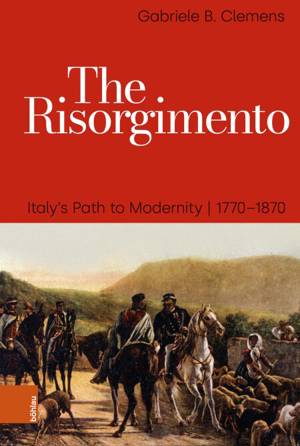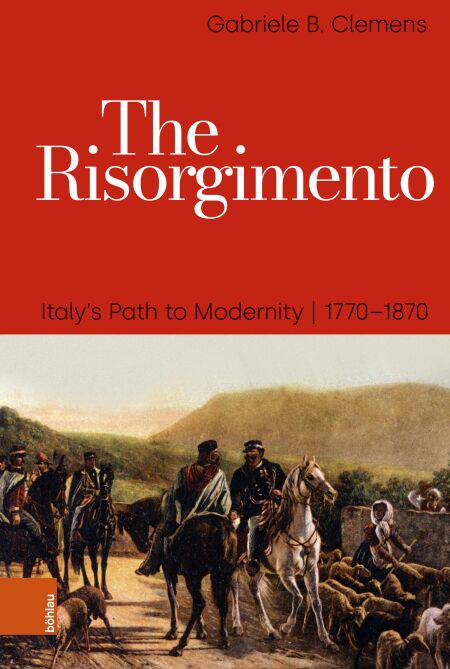
Bedankt voor het vertrouwen het afgelopen jaar! Om jou te bedanken bieden we GRATIS verzending (in België) aan op alles gedurende de hele maand januari.
- Afhalen na 1 uur in een winkel met voorraad
- In januari gratis thuislevering in België
- Ruim aanbod met 7 miljoen producten
Bedankt voor het vertrouwen het afgelopen jaar! Om jou te bedanken bieden we GRATIS verzending (in België) aan op alles gedurende de hele maand januari.
- Afhalen na 1 uur in een winkel met voorraad
- In januari gratis thuislevering in België
- Ruim aanbod met 7 miljoen producten
Zoeken
€ 39,00
+ 39 punten
Uitvoering
Omschrijving
The Risorgimento, the period of nation-state formation, has always had particular significance not only in the historiography of Italy but also for the transnational and comparative history of the founding of nation-states. Gabriele Clemens presents a new, up-to-date and well-founded overview of the history of the Risorgimento. Her account covers an entire century of Italian history, beginning around 1770, before the French Revolution, and ending in 1870 with the conquest of Rome by the troops of the burgeoning nation state. This balanced and highly readable account combines the perspective of political cultural history with an economic and social historical approach. At the same time, it offers new interpretations, for example on the roles played by the nobility and the bourgeoisie. It questions the established claim that the masses were mobilized by means of art, music and literature and critically analyses the significance of Garibaldi, the man and the myth. The path to the nation state is described as the work of a state-supporting elite that acts consistently in transnational networks.
Specificaties
Betrokkenen
- Auteur(s):
- Vertaler(s):
- Uitgeverij:
Inhoud
- Aantal bladzijden:
- 270
- Taal:
- Engels
Eigenschappen
- Productcode (EAN):
- 9783412533168
- Verschijningsdatum:
- 7/09/2025
- Uitvoering:
- E-book
- Formaat:

Alleen bij Standaard Boekhandel
+ 39 punten op je klantenkaart van Standaard Boekhandel
Beoordelingen
We publiceren alleen reviews die voldoen aan de voorwaarden voor reviews. Bekijk onze voorwaarden voor reviews.









